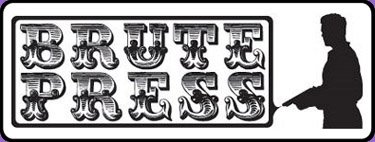Two different articles caught my eye today, in the increasingly verbose re-hashing of the paranoia about the End of the Book. The first was a detailed analysis of the current status of the publishing industry in New York Magazine, and the second was yet another article in the form of a question (so, so, gratuitously annoying a form) about whether literature will survive "the digital age", in the UK's The Independent. For background, both of these articles are continuing the thread, which was perhaps not started but summed from the collective Luddite-leanings of modern society by Nicholas Carr in the Atlantic Monthly article, Is Google Making us Stupid?" Note again, an article in the form of a question.
My answer: no. I already voiced my opinion that literature will live on the digital age; an opinion voiced, perhaps in a not very literary fashion, but yet totally digitally. (At least my title question was more of a weak pun than an actual rhetorical act.)
Which brings me back to the issue, in light of these two readings that I have happened across, in order to make an important point:
 Literature is written words.
Literature is written words.Written words collected together in series are books. (At least until recently.)
Therefore, all literature (until the bright, blinding dawn of the digital age) has been in the form of books.
Yes, strike that false syllogism out! Unfortunately, those whose interests are taken with literature often are given to the inductive logic that "books" represent literature itself. Not true. Books represent many different kinds of word collections, some of which are quite awful indeed. To tell the truth, I would stand and watch my most major publishing houses flaming hulks disappear in a sizzling downdraft beneath the waves of our current cultural crisis. Can you imagine? Celebrity tell-all stories, political hack collections, and pet-themed cookbooks are not successful enough to keep paying their authors millions of dollars in advances, no matter how many of them have a giant "O" of an anus stenciled on the cover! Hosanna! The free-market has finally done something right, and the snake is finally eating itself.
For anyone actually looking, literature is doing is just fine. There are hundreds of working literary journals in the country, and where one falls over, three spring up. If perhaps you wished that you could walk into any bookstore in the country and find the same ten authors that made up some "list", and that you knew well, just like your favorite Starbucks beverage, then you may be out of luck. But there are still many people writing, editing, publishing, and reading literature in print form. Though they might not be making much money at it. And regardless, I'm sure someone will still be publishing Steven King twice a year, no matter what happens.
Literature is written words, and written words have never been more in style.
The idea that literature has to "evolve" in this crazy electronic world is pretty stupid, I think. Literature is not a corporation that has to cater to its stockholders. We should let literature evolve itself. The woman who claims, in the Independent article, that internet forms like Second Life, Twitter, and whatever else are going to give literature a new, digital life are idiots.
 First, as to the technology: ink on paper will still be around no matter what. Sure, its use will decline. But it will always be there for a simple fact: a sheet of paper doesn't do anything but lie on the table. It doesn't run out of batteries, it doesn't get erased by magnetic fields, it can't interfere with the navigational equipment on an airplane, and it won't become anymore obsolete than it already is. It is the simplest denominator of the written word, and as such will always have a place in our culture, just as words will have a place upon it.
First, as to the technology: ink on paper will still be around no matter what. Sure, its use will decline. But it will always be there for a simple fact: a sheet of paper doesn't do anything but lie on the table. It doesn't run out of batteries, it doesn't get erased by magnetic fields, it can't interfere with the navigational equipment on an airplane, and it won't become anymore obsolete than it already is. It is the simplest denominator of the written word, and as such will always have a place in our culture, just as words will have a place upon it.Second as to the literary quality: the words that are used in cyberspace are most often decidedly un-literary. Literature, as my little syllogism was meant to show, is not simply given via the ability to hold content, regardless of how novel the container may be. Literature is an art that evolves within its own semiotic structure: part of, but not reducible to its technological vial.
Can I say it more plainly? Yes: THERE WILL NEVER BE A TWITTER NOVEL.
Of course, I invite efforts to prove me wrong. I read a poem in McSweeney's that was written in the form of either text messages, emails or blog posts, I forget which. Needless to say: abysmal. Stick to stanzas, not SMS. The former was developed to push the literary content, the latter to push commication. The two are not the same. Making a book into a movie or video game makes the book no longer a book, plain and simple. Literature is still only the written word, whether in ink, in binary, or in LCD pixel. A book's character in Second Life is an advertisement or a simulation, not literature in anyway.
Eventually, no doubt, there will evolve literature that finds its rightful place in the womb of our new digital culture. However, this will not change the fact that the last 1000 years of literature found its placenta made from good old ink and paper. (And before that, speech was the hip technology, and speech is just as likely to fade from common use as paper, in my opinion. True, the oratory has seen better days, but there are still artisans and audiences of the form.)
 And furthermore, this strike through of the concept, "words + sphincter = literature" shows why it is idiotic to look forward to an "iPod moment" for literature, when some messianical technological sex-toy descends from the sky to "get everyone reading again". There is no such thing as an iPod moment; we are getting dangerously close the "big-man of history" theory here, a decidedly reactionary conception of anything. (Then again, most literary critics, even the so-called "materialist" ones, seem to conspiculously avoid seizing the means of their production). The only thing the iPod did (even though actually, it was the mp3 that made it all possible) was to give music its "indoor plumbing moment". How amazing a breakthrough is it, really, that now we don't need to rely on record companies and ticket agencies to hear and share good quality music? Raw sewage is no longer flowing in the streets? How delightfully modern!
And furthermore, this strike through of the concept, "words + sphincter = literature" shows why it is idiotic to look forward to an "iPod moment" for literature, when some messianical technological sex-toy descends from the sky to "get everyone reading again". There is no such thing as an iPod moment; we are getting dangerously close the "big-man of history" theory here, a decidedly reactionary conception of anything. (Then again, most literary critics, even the so-called "materialist" ones, seem to conspiculously avoid seizing the means of their production). The only thing the iPod did (even though actually, it was the mp3 that made it all possible) was to give music its "indoor plumbing moment". How amazing a breakthrough is it, really, that now we don't need to rely on record companies and ticket agencies to hear and share good quality music? Raw sewage is no longer flowing in the streets? How delightfully modern!The iPod for literature is the book. Anyone can write the text, and anyone with an hour, some glue and some paper can bind one. Then you can give it to a friend, sell it to a shop, or burn it if you wish. You can carry it anywhere and it doesn't need electricity. It will even work in zero gravity.
To sum it up: literature, as a field of artistic creation, will probably stay about the same regardless off of what surface or substance it is read. The big book corporations and the music corporations will both, hopefully, go their appointed ways. I'm not worried about literature in the slightest. In fact, I bet literature will only get better. As I've said before, it's only recently that the literacy rate is so high; it should not be surprising that the literature rate has stayed about the same. Oh, and beware those who try to sell you on the quantity-quality conversion (AMAZON). It was just those sorts of quantativists that caused the failure of the publishing houses to begin with (on the stockholder side AND on the rich author side).



No comments:
Post a Comment